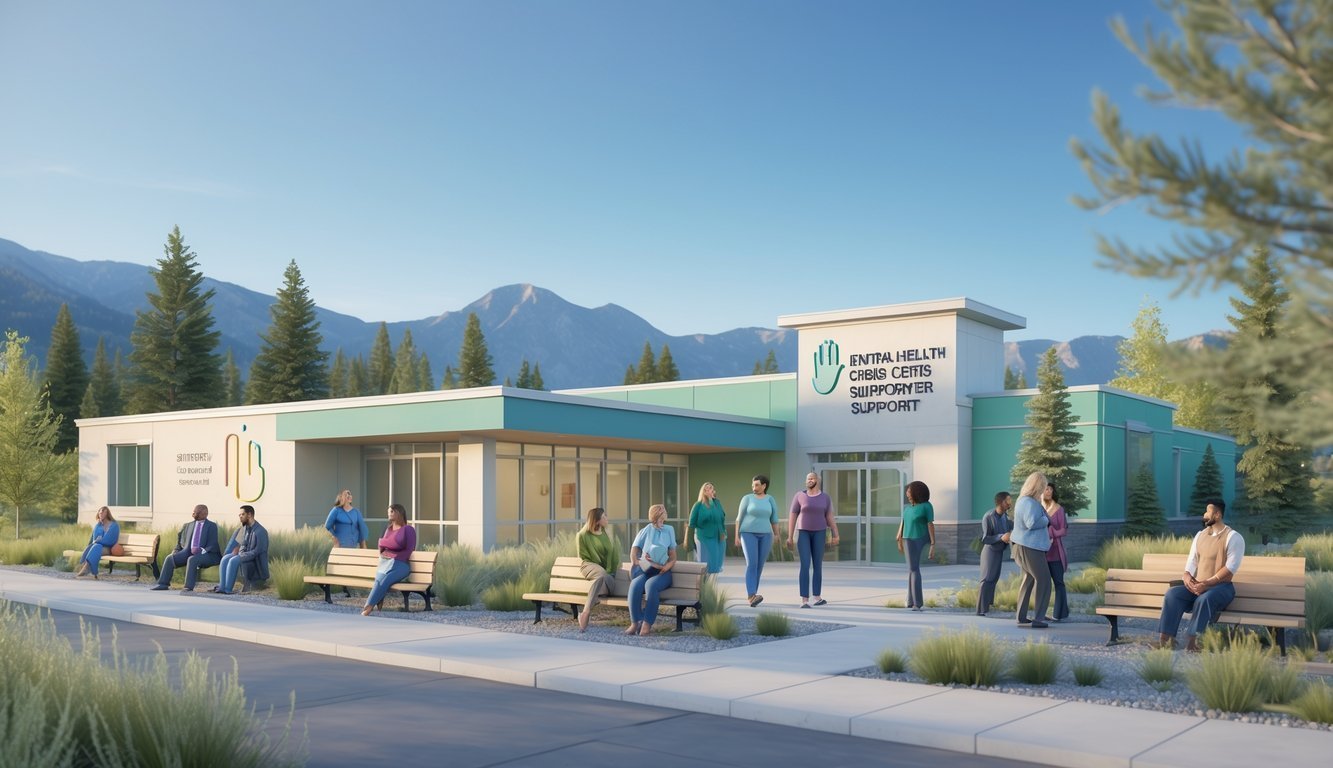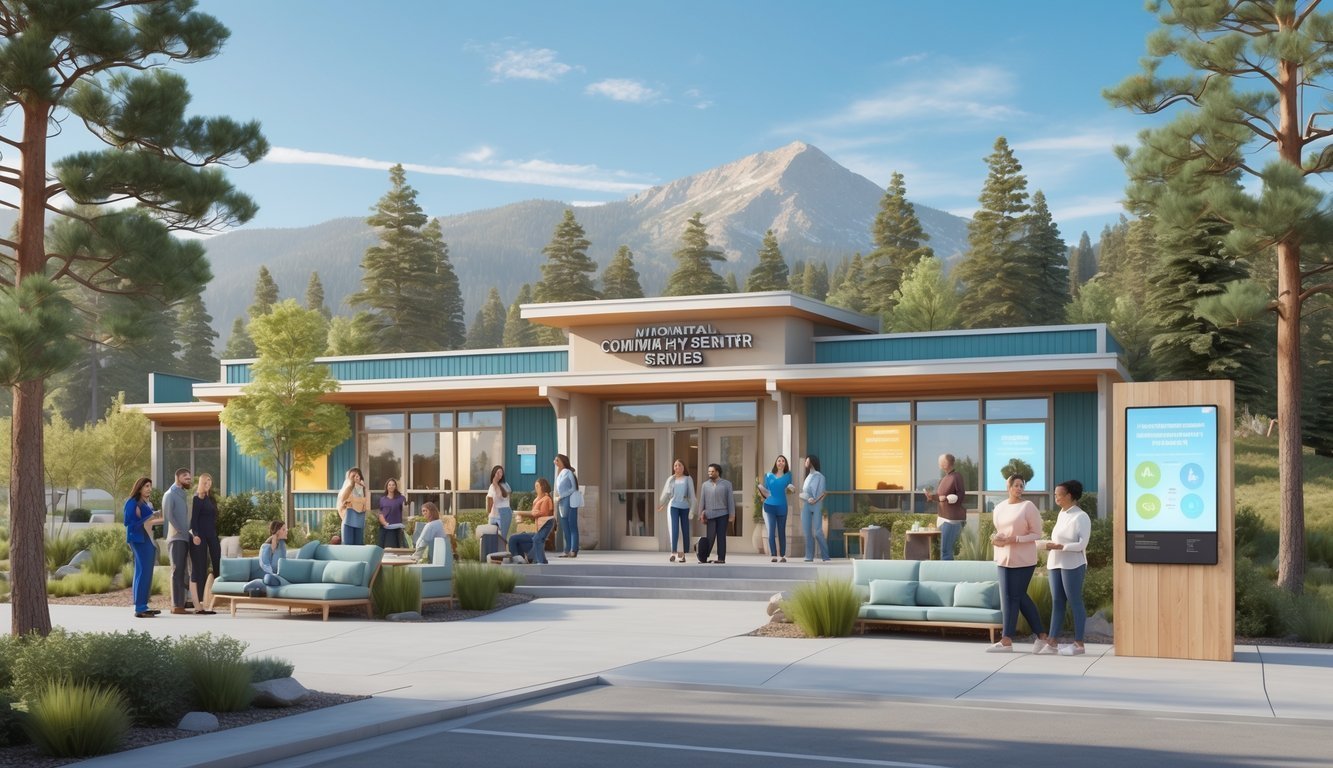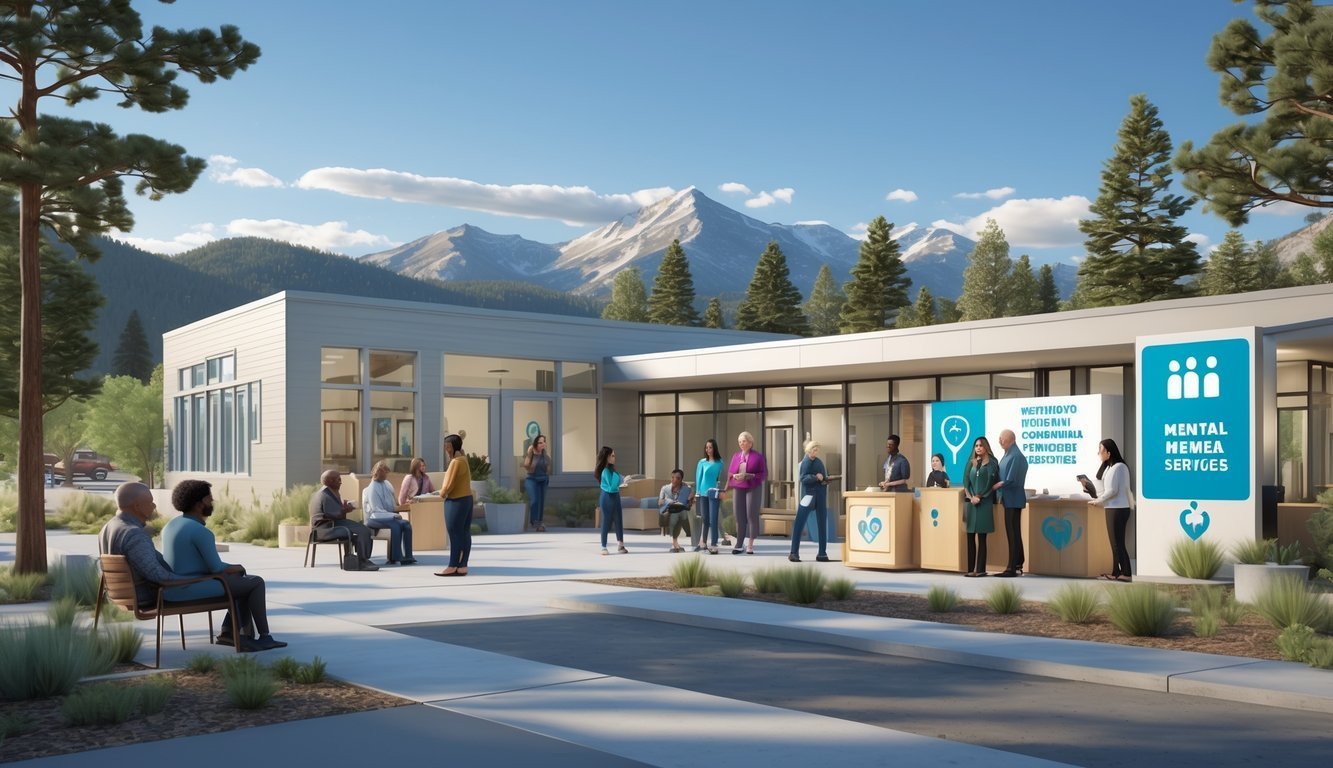PsychNewsDaily Publishers
100 Summit Drive
Burlington, MA, 01803
Telephone: (320) 349-2484
PsychNewsDaily Publishers
100 Summit Drive
Burlington, MA, 01803
Telephone: (320) 349-2484
Montana offers various no-cost mental health support options, including crisis hotlines, community health centers, and specialized programs for children, veterans, and rural residents.

Trying to find free mental health support in Montana can feel like a lot, especially if you’re already having a tough time. Thankfully, Montana has several no-cost mental health services through state programs, local organizations, and crisis support networks that you can use right now.
You can get free mental health help in Montana through state-funded programs, community health centers, crisis hotlines, and nonprofits. You don’t need insurance or to meet income requirements. The Montana Department of Public Health and Human Services coordinates a lot of these options, and local groups provide extra support for different communities.
If you need immediate crisis help or ongoing counseling, knowing your choices makes it easier to get the right care fast. Montana’s rural areas can make things tricky, but there are programs working hard to bridge those gaps and connect you with mental health professionals who get what your community faces.

People in Montana who are facing a mental health emergency can access 24/7 crisis support. You can reach out to national hotlines, state resources, and local crisis centers that jump in with immediate help and safety planning.
The 988 Suicide & Crisis Lifeline gives you free, confidential support any time, day or night. Just dial 988 from anywhere in Montana and you’ll connect with trained crisis counselors.
This national service connects you to local crisis centers nearby. Counselors help with suicide prevention, emotional distress, and mental health crises.
Available Services:
People of all ages can use the lifeline. Crisis counselors jump in right away and can help you connect with mental health resources in Montana.
People usually get a response in less than a minute. All conversations stay confidential unless you’re in immediate danger.
Montana has several crisis hotlines for different mental health emergencies. These services work alongside the 988 lifeline and offer state-specific help.
The Montana Crisis Action School Toolkit supports students and school staff. This resource helps spot warning signs and lays out steps for immediate response.
Many hotlines work with the Montana Department of Public Health and Human Services. These services offer crisis intervention and can refer you to local treatment.
Key Features:
Some hotlines focus on certain groups like veterans, teens, or families. Others help with specific emergencies like domestic violence or substance abuse.
Montana communities run local crisis centers that offer phone support and in-person services. Staff at these centers know the local resources and understand Montana’s culture.
Many centers do more than just phone calls. Some send mobile crisis teams out to help you where you are during an emergency.
Typical Services Include:
Rural Montana has its own set of challenges for mental health care. Local crisis centers help by giving fast support and connecting you to more resources.
Many centers use volunteers trained in crisis intervention. Response times can depend on where you live, but you’ll usually get quick phone support and same-day in-person help if needed.

Montana has a variety of free mental health services through community centers, state programs, and nonprofits. You’ll find counseling, crisis support, and special programs for kids and adults who can’t pay for private care.
Crisis Intervention Services jump in right away during emergencies. You can call 24/7 hotlines or reach out to mobile crisis teams anywhere in Montana.
Individual and Group Counseling is available through different programs. These sessions help with depression, anxiety, trauma, and other mental health concerns.
Children’s Mental Health Services give special support for young people. The Children’s Mental Health Services program helps families dealing with childhood mental health struggles.
Peer Support Programs connect you with others who’ve been through similar things. These groups offer emotional support and practical tips from people who really get it.
Case Management Services help organize your care. Staff can find resources, set up appointments, and connect you with other services you might need.
Community mental health centers are the main places for free mental health care in Montana. The state and federal government fund these centers, so you can get help no matter your ability to pay.
Each center offers different levels of care depending on what you need. You’ll find intake assessments, regular therapy, medication management, and crisis support.
Sliding Fee Scales make things affordable based on your income. Many centers will see you even if you don’t have insurance or income.
Centers also work with other local services. They team up with schools, hospitals, and social services to give you well-rounded care.
Most centers accept walk-ins for crises. You can also set up regular appointments for ongoing support.
Federally Qualified Health Centers (FQHCs) across Montana offer mental health services along with regular medical care. These clinics help everyone, no matter your insurance or ability to pay.
Community Health Centers combine mental health and primary care. That way, you can take care of both your body and mind in the same place.
Rural areas often use mobile clinics that travel to communities with fewer resources. These clinics bring mental health care to places that might not have it otherwise.
University Training Clinics let supervised students provide free services. Montana State University and University of Montana both have these programs for the community.
Nonprofits also run free clinics in bigger cities. These places focus on mental health and substance abuse treatment.
Some clinics are just for certain groups like veterans, kids, or people without homes. They shape their services to fit what those communities need.

Several major groups support mental health across Montana. You’ll find everything from crisis intervention to peer support groups, and these resources connect you with trained professionals and community members who understand what you’re going through.
NAMI Montana leads grassroots mental health support in the state. The organization provides education, support, and advocacy for people and families dealing with mental illness.
Free Services Available:
NAMI Montana runs peer-led support groups in many towns. These groups meet regularly and give people a safe space to talk.
The group also organizes mental health awareness events. You’ll find local NAMI chapters in cities like Billings, Missoula, and Great Falls.
Montana’s state-funded mental health centers offer free or low-cost help. These agencies provide counseling, crisis help, and case management.
Community mental health centers operate in every region. They use sliding-scale fees based on your income and what you can pay.
Services Typically Include:
The Montana Office of Rural Health works to make mental health services easier to access in rural areas. They partner with local providers to offer more services.
Many agencies have special programs for kids, teens, and adults with severe mental illness.
Peer support groups meet all over Montana and offer free emotional support. People with lived experience lead these groups.
Types of Support Groups:
Most groups meet weekly or monthly at community centers, libraries, or clinics. Usually, you don’t have to register to attend.
Peer support specialists work in many mental health programs around the state. They use their own recovery experience to help others find their way.
Online support groups have become more common, which helps rural residents who can’t make it to in-person meetings.
Getting free mental health services in Montana means knowing what programs you qualify for and where to look. Most services are available online or in-person through state programs and community groups.
Most free mental health programs in Montana use income guidelines to see if you qualify. You usually need to earn less than a certain amount, depending on your family size.
Income Requirements:
Other Qualifying Factors:
Montana Medicaid covers mental health services for people who qualify. The Montana Office of Rural Health supports behavioral health programs statewide.
Some programs don’t check income during emergencies. Crisis services are open to anyone who needs help right away.
Reach out to your local health department to find mental health resources nearby. They keep lists of free and low-cost providers.
Contact Options:
Questions to Ask Providers:
Some rural areas don’t have many options. Montana’s rural healthcare challenges mean you might need to travel or use telehealth.
Montana mental health programs offer both online and face-to-face counseling. If you live in a remote area, virtual services can make it easier to get help.
Virtual Services Include:
In-Person Options:
Crisis Resources:
Most providers offer both options, so you can pick what feels right for you. Some people like sitting down with someone in person, while others just want the flexibility of a virtual appointment.